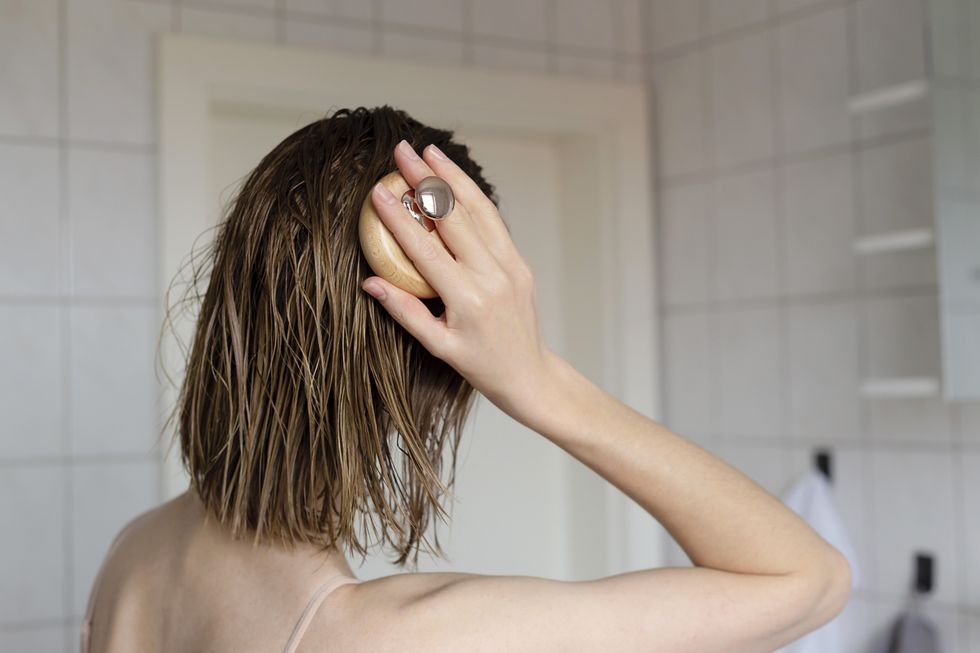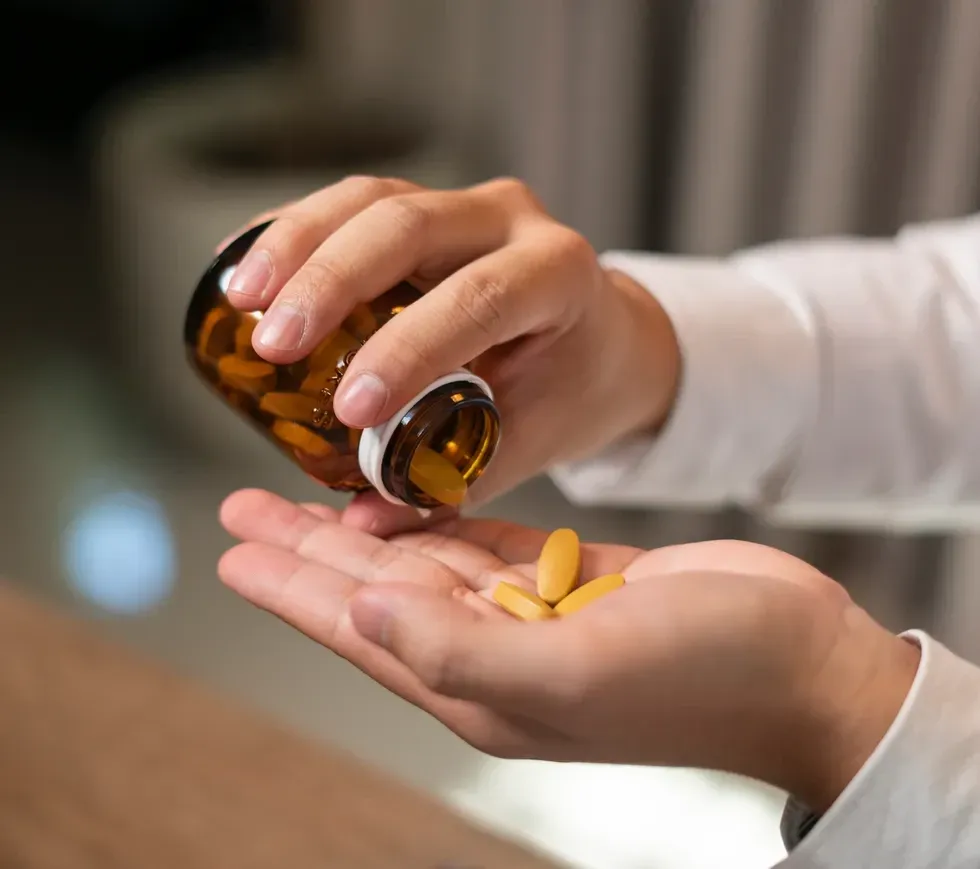Hair expert shares how to heal a dry, itchy scalp as more and more grapple with condition

Google searches for 'best way to treat a dry scalp' have increased by 25 per cent in the last year
Don't Miss
Most Read
Just like the skin on your face and body, the skin on your scalp changes over time. As sebaceous glands become less effective with age, it's not unusual to experience dryness.
A dry scalp often leads to itching and flakiness, creating the conditions for damage and ultimately, hair loss.
Many people are currently experiencing this, sparking a 25 per cent increase in Google searches for "best way to treat a dry scalp" in the last year alone. Meanwhile, "hair care for dry scalp" has risen by 24 per cent.
**ARE YOU READING THIS ON OUR APP? DOWNLOAD NOW FOR THE BEST GB NEWS EXPERIENCE**
But it's possible to get this under control in just a few steps. Here, resident trichologist at Absolute Collagen, Eva Proudman, shared five simple ways women can transform a dry scalp.
Use gentle products
"Although they might smell great, heavily perfumed hair products can irritate the skin on your scalp.
"While not all hair products with fragrance will cause your scalp to itch, those containing parabens or phthalates are worth avoiding, as these chemicals can strip your scalp of its natural oils, leaving it dry and irritated.
"Some of the best shampoos for a dry scalp are ones designed for sensitive skin, as these are less likely to contain skin irritants.
"Some key ingredients to look out for instead are ginger or aloe vera. Ginger is a great anti-inflammatory and helps soothe the scalp, while aloe vera not only soothes the area but also moisturises the scalp too."
Oil your scalp
"Applying oils is one of the simplest ways to hydrate a dry scalp.
"Massaging coconut oil into your hair is a great, affordable, at-home way to remedy a dry scalp.
"You can leave it in your hair for as little as half an hour, or even overnight, to help you stop itching your scalp at night.
"To remove, make sure you thoroughly wash your hair to properly remove the product and avoid excess oil build-up.
"Adding a drop of peppermint oil to the coconut oil before applying can offer anti-inflammatory and cooling properties to further soothe the irritation and reduce inflammation.
"However, if including this, wash it out after a maximum of 20 minutes, removing it sooner if the tingling sensation is too much."
LATEST DEVELOPMENTS:

A DIY head massage is great for your scalp – bonus points if you incorporate oil
| GETTYTry a scalp massaging brush
"Not only are scalp brushes a luxurious upgrade to your hair-washing routine, but they can also help treat a dry scalp.
"Scalp massaging brushes are great for removing the build-up of old skin cells and can help to reduce dry flakes.
"Simply take the massager and rub it in small circular motions across your scalp at least once a week.
"Using it in the shower on wet hair makes it even easier, you can even pop some nourishing shampoo on the massager for a deeper clean – or to simply save on time."

Consider supplementation to 'support your hair from within'
| GETTYSupport your hair from within
"The skin on your scalp is just like the skin on your face – it all needs to be looked after.
"Supplements are a great way to help boost the body’s nutrients that support the skin on your face and scalp.
"For example, collagen is a key protein in our scalp, so taking a daily collagen supplement can boost your levels, resulting in stronger and thicker-looking hair.
"On top of collagen, vitamins and minerals such as vitamin E, zinc, and iron can all further support hair health and strength."
Dial down the heat
"Steamy, hot showers may be soothing to the body and mind, but they could be irritating your scalp.
"Taking hot showers can dry out your scalp further, making it itchier and increasing the risk of dry flakes.
"If you're experiencing a dry scalp, lower the water temperature so it's warm but not hot, reducing the risk of drying out your scalp further and allowing it time to heal.
"These at-home tricks should improve your dry, itchy scalp over time. However, if you are still suffering, it may be worth talking to a dermatologist about other ways to support your scalp."
If you want to get your scalp situation under control, it's important to understand the distinction between dryness and dandruff.
Eva said: "While skin conditions and skin sensitivities can make your scalp itchy, it could be a symptom of infrequent washing and sweat build-up. When you don’t wash your hair, sweat and natural oils build up, which can cause itching and dryness.
"People often mistake having a dry scalp for dandruff. However, dry skin flakes tend to be smaller and drier, and you won't get the same red and inflamed skin on your scalp as you do with dandruff.
"Thankfully, dry skin on your scalp is easy to treat and can be done so by some simple at-home changes."
If you're seeking sensational strands, your best bet is practising excellent hair care and enlisting a GP, dermatologist, or trichologist for tailored advice.
Before taking any new supplements or making major changes to your diet, always consult your healthcare practitioner.











